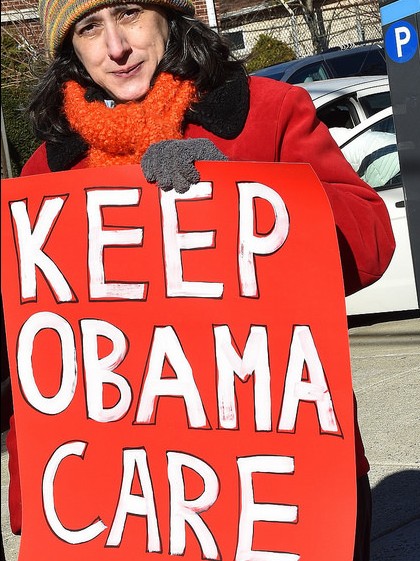JoAnn Volk of the Georgetown University Center on Health Insurance Reform writes for Health Affairs about the consequences for people with employer coverage of the Republicans’ plan to repeal the Affordable Care Act. We know that if the ACA is repealed, 22.5 million people are at risk of losing their health insurance because they will no longer be eligible for Medicaid or will lose subsidies to help afford coverage in the individual market or have preexisting conditions. In addition 150 million people who get their health insurance through their jobs are at risk of losing good affordable coverage and being underinsured.
Here’s what tens of millions of Americans will be facing if the ACA is repealed and replaced with a health insurance plan lacking strong consumer protections:
- Health plans with only limited benefits, leaving people underinsured: The ACA ensures that large employer plans cover essential benefits and not simply a minimal set of benefits that would leave people needing costly care without adequate coverage. If the ACA is repealed, we will return to a state where health insurers sell tens of millions of Americans less coverage than they may need.
- Health plans requiring people to pay up for preventive care: The ACA ensures that the cost of preventive services does not interfere with people getting these services; it has required that vaccines, annual check-ups and other key screenings to detect health issues before they develop are covered in full. If the ACA is repealed insurers can once again make people meet hefty deductibles and/or pay a large portion of the cost of preventive care.
- Long delays in coverage for people with pre-existing conditions: The ACA prevents employers from making people wait to get coverage for their pre-existing conditions. Until the ACA was implemented, employers were able to make people with pre-existing conditions wait as long as a year. Only people who had the option of buying COBRA from a prior job and were able to afford the high cost of that insurance were able to avoid the wait if they had a pre-existing condition.
- No dependent health care coverage for young adults up to age 26: The ACA ensures coverage to young adults through their parents’ job coverage until they are 26. As a result, many more young adults have health coverage today then ever before. (This is one provision of the ACA that the Republican leadership says it will keep in a replacement plan.)
- Unlimited annual out-of-pocket costs for reasonable and necessary care: The ACA ensures a limit on how much money health insurers can require people to pay for their care in a given year. This provision in turn helps people with costly conditions afford the cost of their care without going bankrupt. Without it, people who need a lot of care may be forced to go without it or pushed into poverty paying for it.
- Yearly and lifetime dollar limits on health plan coverage of reasonable and necessary care. The ACA prevents employers from limiting the amount of coverage they provide based on the cost of people’s care in a year or in their lifetimes. Caps on benefits are prohibited, ensuring that people with costly and complex conditions will always have coverage. If the ACA is repealed, people with costly conditions could lose their health care coverage mid-year or, worse still, for the rest of their lives.
- No right to challenge denials of coverage or payment: The ACA ensures that workers who are in employer health plans that are self-funded (60 percent of workers) can question decisions by their health plans to deny them coverage or not pay for their care through an inexpensive independent review process.
Here’s more from Just Care:











This is an important article — thank you, Diane.
Another ACA provision we saw firsthand in the pre-ACA years: Our 19-year-old son was battling brain cancer. We got a cancellation of coverage letter the day before his third brain surgery. He was too old to be covered.
Oh, and could he go out on the individual market and buy coverage with that pre-existing condition?
I sustained a brain injury that required 2 brain surgeries totaling over 300,000 dollars. I fear that I will no longer have affordable healthcare, if any @ all. I was employed for 30 years in an emergency department. I have had help composing my thoughts due to this injury, yet I wanted to share my concerns with you & your family. Sadly we are not alone.